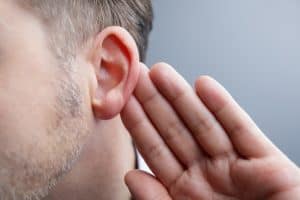Workplace-Related Hearing Loss
 Your hearing might be one of those senses that you take for granted until there is a problem with it. Many workers rely on their ability to hear in their daily work, so any decrease in hearing ability or a loss of hearing altogether could make it impossible and unsafe for some workers to do their jobs, and it would also diminish the quality of the rest of a person’s life outside of work. The Occupational Safety and Health Administration (OSHA) reports that 22 million workers are exposed to potentially damaging noise at work every year, and last year, U.S. businesses paid more than $1.5 million in penalties for not protecting workers from noise. OSHA estimates that an estimated $242 million is spent each year on workers’ compensation for hearing loss disability.
Your hearing might be one of those senses that you take for granted until there is a problem with it. Many workers rely on their ability to hear in their daily work, so any decrease in hearing ability or a loss of hearing altogether could make it impossible and unsafe for some workers to do their jobs, and it would also diminish the quality of the rest of a person’s life outside of work. The Occupational Safety and Health Administration (OSHA) reports that 22 million workers are exposed to potentially damaging noise at work every year, and last year, U.S. businesses paid more than $1.5 million in penalties for not protecting workers from noise. OSHA estimates that an estimated $242 million is spent each year on workers’ compensation for hearing loss disability.
Workers’ compensation pays injured workers a partial wage-replacement disability payment to compensate them for lost wages while they recover from their injuries and are unable to work. The Mississippi Workers’ Compensation Commission calculates this benefit based on your regular weekly salary. The weekly benefit amount is then multiplied depending on the nature of the permanent loss. A worker who has lost their hearing in one ear or in both ears permanently may receive compensation for the permanent loss of hearing on one ear of 40 weeks and 150 weeks for hearing loss in both ears. MS Code § 71-3-17 (2016)
How does occupational hearing loss occur?
Hearing loss can occur after a loud noise or explosion, or it can happen slowly over time as a worker is exposed to loud noises all day at work for weeks, months and years on end. One of the challenges with hearing loss is that once you have lost your hearing, you cannot get it back.
What occupations are prone to causing hearing loss?
While no field is immune from hearing loss injuries, there are some industries where loud noises, explosions, and chemical exposure is more of a risk factor than others. Here are the top five industries or occupations with a high risk for hearing loss injuries:
- Manufacturing
- Construction/carpentry/mining
- Entertainment/nightlife
- Military
- Agriculture/farming
Government standards for noise in the workplace
The National Institute of Occupational Safety and Health (NIOSH) and OSHA have established workplace safety standards regarding exposure to noise in the workplace. NIOSH recommendations include:
The Recommended Exposure Limit (REL) for occupational noise exposure is 85 decibels for eight hours. Any exposure above these levels is considered hazardous. NIOSH also recommends using hearing protection when hazardous noise levels cannot be adequately reduced.
OSHA regulations include a table of permissible noise exposures, of which the upper limit is 90 decibels over eight hours at the upper limit, and employers shall administer a continuing, effective hearing conservation program, which is defined in the OSHA regulations.
An employer’s workers’ compensation insurer might deny an employee’s claim that their hearing loss was occupational. If you have had a denied workers’ compensation claim, a Mississippi workers’ compensation attorney can advise you of your legal options and represent you in a hearing with the Mississippi Workers’ Compensation Commission.
If you believe you are being wrongfully denied workers’ compensation benefits in Mississippi, contact the legal team at Merkel & Cocke, P.A. for assistance. You should not have to deal with medical bills and loss of wages on your own. Please call us today at 662-627-9641 or complete our contact form to schedule a free consultation at one of our offices in Oxford, Jackson and Clarksdale.
Related Articles
- Workers’ Compensation
- Oxford Workers’ Compensation
- Jackson Workers’ Compensation
- Why Do You Need a Mississippi Workers’ Compensation Lawyer?
- What Are Workers’ Compensation Vocational Rehabilitation Benefits?
- Don’t Give Up if Your Mississippi Workers’ Compensation Claim Was Denied
- Getting Compensation When You’re Injured on the Job
- Mississippi Workers’ Compensation, Dangerous Jobs and Death Benefits

Since 1982, Merkel & Cocke, P.A. has offered thorough, aggressive legal representation on behalf of clients throughout Mississippi. As one of the largest plaintiffs’ personal injury law firms in the state, we consider it our duty and our honor to serve the people of our communities, and to uphold their rights in court. Our reputation is such that other law firms turn to us when they need legal counsel, and our business has grown through the years because of the referrals of these attorneys, who trust us with their needs and the needs of their clients. We are the firm you can trust when there are challenges ahead. To schedule a free consultation, please complete our contact form.
